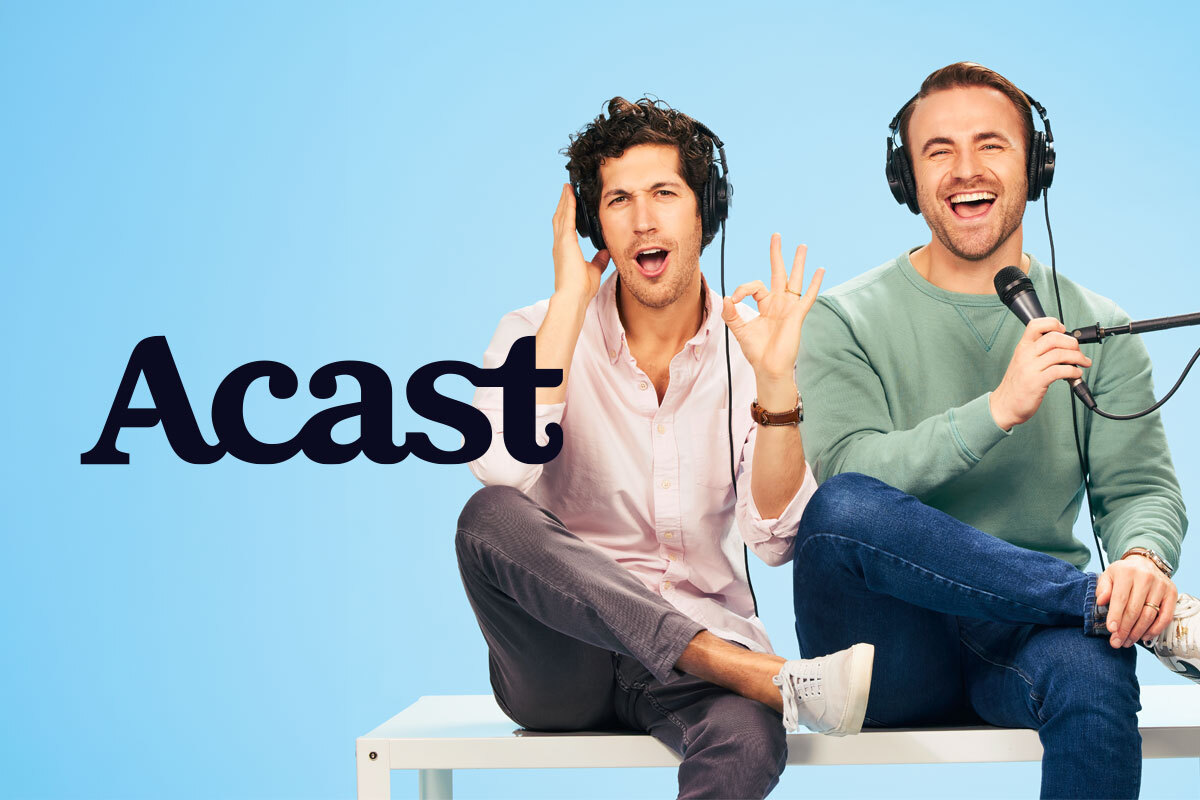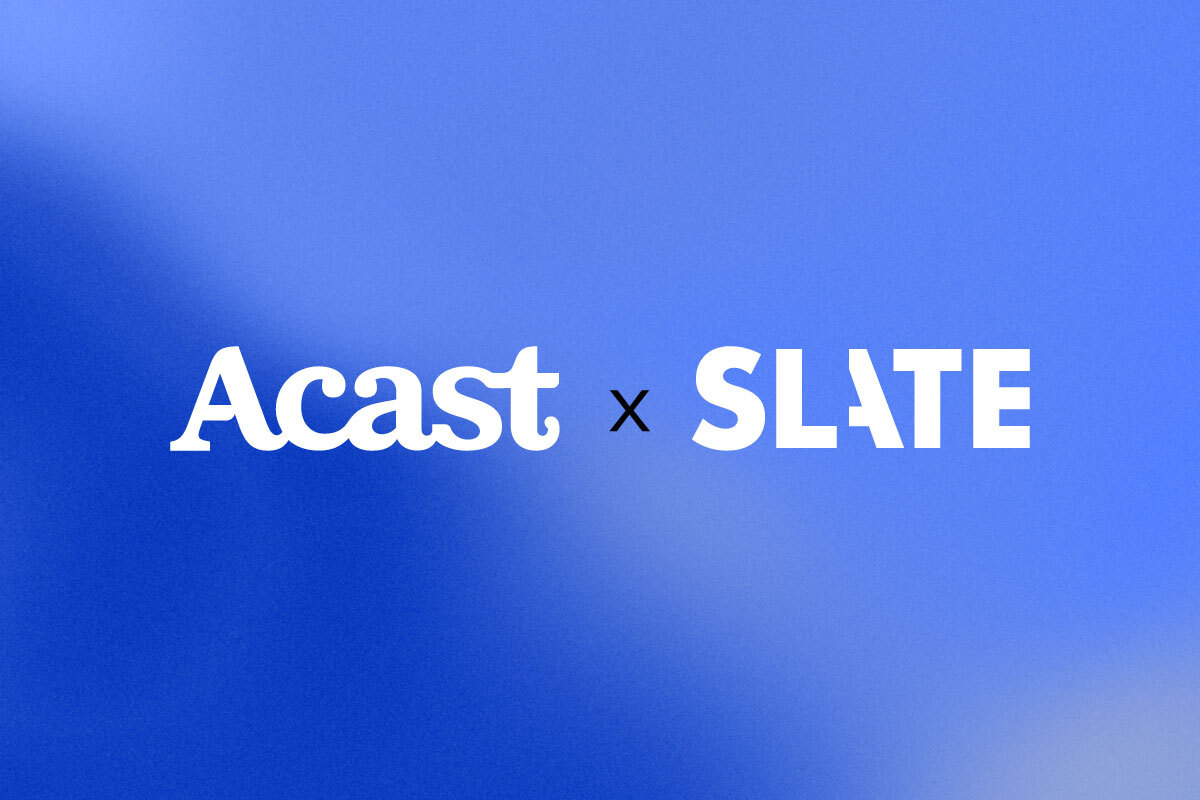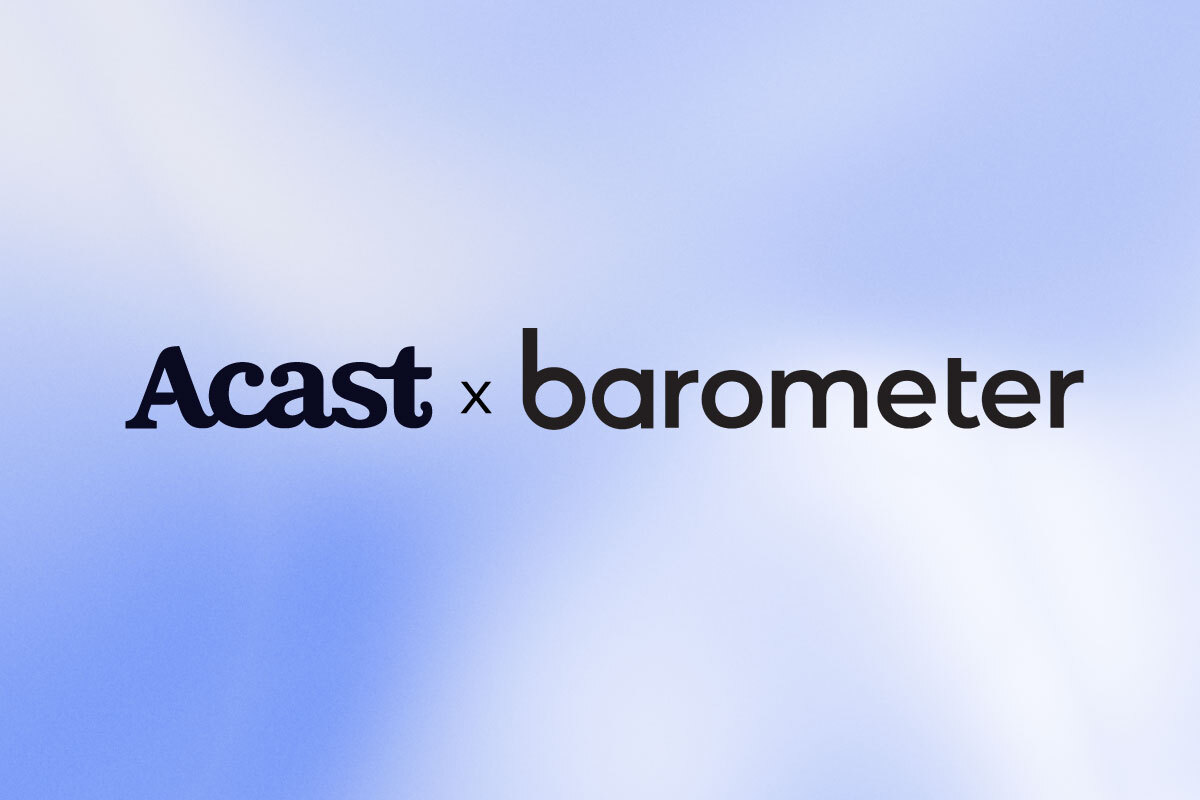Meet the Podcaster: Lamestream
.png)
This month, award-winning journalists Osman Faruqi and Scott Mitchell launched Lamestream, a new independent podcast that explores how Australian media shapes our society, culture and politics.
With weekly episodes released in audio and video, Lamestream delivers a bold, unfiltered alternative to traditional outlets. Osman and Scott pull no punches – offering sharp insights, strong opinions and behind-the-scenes secrets from inside the media machine.
We caught up with the duo to discuss everything from the impact of AI on journalism and Trump’s attacks on public broadcasters, to the best coffee spots in Melbourne.
Interview with Lamestream
Acast: You’ve both worked at some of the country’s leading media organisations including the ABC, Schwartz Media, The Age and Sydney Morning Herald. Tell us about Lamestream. What inspired you to set up an independent podcast?
Osman and Scott: So many people are turning away from major media companies, but people feel more interested and engaged in the world than ever. We realised that these days, what makes so many stories interesting – whether it’s news, pop-culture, politics – was actually the media itself.
We wanted to be able to talk about how the media got things wrong, why it misunderstands its audience and dish the kind of ‘behind-the-scenes’ secrets that the media likes to keep under wraps. All of that meant we had to do this fully independently.
Acast: For anyone who hasn’t yet heard the show, can you tell us about the format and topics you’ll be discussing. What have you got planned for upcoming episodes?
Osman and Scott: Each episode we pick a couple of topics that we think deserve more attention or a deep dive and unpack how a part of the media ecosystem works, why a certain story is being covered a certain way, or look at how sections of the media keep getting certain things very wrong. We also have a segment called ‘Keeping Tabs’ where we share developing stories, or bring our own reporting to the conversation about stories we think deserve more attention.
We’ve covered the state of commercial radio, political reporting, the rise of news influencers, the insularity of the AFL media, problems with how the ABC covers foreign affairs at the moment. We plan on talking about what happened to music journalism, looking closer at the ABC, and examining how AI is transforming news reporting.
Acast: What changes have you seen in the Australian media landscape since you both started your careers?
Osman and Scott: I think the biggest change is that media companies used to have room to experiment and could take creative risks to reach new audiences. You had comedy programs like The Chaser and Hungry Beast at the ABC and the Daily Life section in the SMH and The Age, where writers like Clementine Ford were published for the first time by a major media company.
A mix of tightened budgets and unimaginative executives mean Australian media has forgotten how to make new stars, new programs – new anything really.
Acast: What do you think legacy media organisations should be doing differently to engage young people in Australia?
Osman and Scott: Content for younger audiences – sometimes defined by media companies as everyone under 45 – only gets the short thrift. The approach is to hire cheap staff, re-purpose content from linear broadcast for channels like Instagram and that’s 'job done'. It’s no wonder young people turn away.
We’re talking about over half the population – there should be far more big-time budgets and flagship formats designed by younger talent for younger Australians.
Acast: Do you think there should be more regulation around social media? What could organisations and governments be doing to tackle the spread of ‘fake news’?
Osman and Scott: Yes, but the answer isn’t regulating the audience and the users.
The multi-billion dollar platforms, which make revenue out of the outrage, misinformation and bullying we’re all concerned by – should themselves be taxed and fined, and that revenue put into expanding public media, education and other projects that make the public square a bit less insane.
Acast: In the US, Trump has just announced spending cuts for public broadcasters NPR and PBS. Why is this such a dangerous threat? What repercussions do you think the change could have?
Osman and Scott: It’s quite literally never been important for there to be strong, independent publicly funded media outlets. The fragmentation and commercialisation of so much of the landscape has made it harder for audiences to find out what’s really going on and who to trust. Publicly funded media can be the antidote in that situation. Without it, it looks like we’re consigned to a media world dominated by billionaires like Elon Musk and Jeff Bezos.
Quick fire round
One word to describe the current media landscape?
Osman: Grim (sorry).
Scott: Nuts.
Most memorable quote of the federal election?
Osman: “If I fell off a stage, I wouldn't lie about it.” Peter Dutton. Sums up how absurd the race got towards the end.
Hero journalist?
Osman: Edward R. Murrow. If you don’t know who that is, watch George Clooney’s excellent film Good Night and Good Luck.
Scott: Murray Sayle and Phillip Knightly. Tied. Not enough Australians know them, but they broke some of the biggest stories in the world.
Headline you wish you wrote?
Osman: “Why I've got a Packer up my clacker”. Google it, the context, the delivery, it’s all amazing.
Democracy sausage or UberEats?
Osman: Always the sausage.
Scott: Neither. EASI, the Sichuan is wild over on that app.
Murdoch or Musk?
Osman: Murdoch. I can’t believe I said that.
Scott: Murdoch. At least he paid for The Simpsons.
Early bird or night owl?
Both: Night owl.
Guilty pleasure TV series?
Osman: Yellowstone. It’s my gateway to middle America.
Scott: Reacher. Have you seen that dude? He’s so large!
Melbourne’s best coffee spot?
Osman: Assembly in Carlton. The best tea and coffee in the country.
Dream podcast guest?
Osman: Bill Simmons. Would love to turn the tables on the podfather.
Scott: Jon Ronson. And I got to interview him at 7am last year! Would love Jon on Lamestream. But new ones: Grace Blakeley, Fatima Bhutto, Tony Gilroy, Ben Taub and Bryan Curtis from The Press Box.
Favourite takeaway order?
Osman: Kantin in Carlton does the best Indonesian chicken.
Lamestream is available to stream on the Lamestream website and wherever you get your podcasts.
This month, award-winning journalists Osman Faruqi and Scott Mitchell launched Lamestream, a new independent podcast that explores how Australian media shapes our society, culture and politics.
With weekly episodes released in audio and video, Lamestream delivers a bold, unfiltered alternative to traditional outlets. Osman and Scott pull no punches – offering sharp insights, strong opinions and behind-the-scenes secrets from inside the media machine.
We caught up with the duo to discuss everything from the impact of AI on journalism and Trump’s attacks on public broadcasters, to the best coffee spots in Melbourne.
Interview with Lamestream
Acast: You’ve both worked at some of the country’s leading media organisations including the ABC, Schwartz Media, The Age and Sydney Morning Herald. Tell us about Lamestream. What inspired you to set up an independent podcast?
Osman and Scott: So many people are turning away from major media companies, but people feel more interested and engaged in the world than ever. We realised that these days, what makes so many stories interesting – whether it’s news, pop-culture, politics – was actually the media itself.
We wanted to be able to talk about how the media got things wrong, why it misunderstands its audience and dish the kind of ‘behind-the-scenes’ secrets that the media likes to keep under wraps. All of that meant we had to do this fully independently.
Acast: For anyone who hasn’t yet heard the show, can you tell us about the format and topics you’ll be discussing. What have you got planned for upcoming episodes?
Osman and Scott: Each episode we pick a couple of topics that we think deserve more attention or a deep dive and unpack how a part of the media ecosystem works, why a certain story is being covered a certain way, or look at how sections of the media keep getting certain things very wrong. We also have a segment called ‘Keeping Tabs’ where we share developing stories, or bring our own reporting to the conversation about stories we think deserve more attention.
We’ve covered the state of commercial radio, political reporting, the rise of news influencers, the insularity of the AFL media, problems with how the ABC covers foreign affairs at the moment. We plan on talking about what happened to music journalism, looking closer at the ABC, and examining how AI is transforming news reporting.
Acast: What changes have you seen in the Australian media landscape since you both started your careers?
Osman and Scott: I think the biggest change is that media companies used to have room to experiment and could take creative risks to reach new audiences. You had comedy programs like The Chaser and Hungry Beast at the ABC and the Daily Life section in the SMH and The Age, where writers like Clementine Ford were published for the first time by a major media company.
A mix of tightened budgets and unimaginative executives mean Australian media has forgotten how to make new stars, new programs – new anything really.
Acast: What do you think legacy media organisations should be doing differently to engage young people in Australia?
Osman and Scott: Content for younger audiences – sometimes defined by media companies as everyone under 45 – only gets the short thrift. The approach is to hire cheap staff, re-purpose content from linear broadcast for channels like Instagram and that’s 'job done'. It’s no wonder young people turn away.
We’re talking about over half the population – there should be far more big-time budgets and flagship formats designed by younger talent for younger Australians.
Acast: Do you think there should be more regulation around social media? What could organisations and governments be doing to tackle the spread of ‘fake news’?
Osman and Scott: Yes, but the answer isn’t regulating the audience and the users.
The multi-billion dollar platforms, which make revenue out of the outrage, misinformation and bullying we’re all concerned by – should themselves be taxed and fined, and that revenue put into expanding public media, education and other projects that make the public square a bit less insane.
Acast: In the US, Trump has just announced spending cuts for public broadcasters NPR and PBS. Why is this such a dangerous threat? What repercussions do you think the change could have?
Osman and Scott: It’s quite literally never been important for there to be strong, independent publicly funded media outlets. The fragmentation and commercialisation of so much of the landscape has made it harder for audiences to find out what’s really going on and who to trust. Publicly funded media can be the antidote in that situation. Without it, it looks like we’re consigned to a media world dominated by billionaires like Elon Musk and Jeff Bezos.
Quick fire round
One word to describe the current media landscape?
Osman: Grim (sorry).
Scott: Nuts.
Most memorable quote of the federal election?
Osman: “If I fell off a stage, I wouldn't lie about it.” Peter Dutton. Sums up how absurd the race got towards the end.
Hero journalist?
Osman: Edward R. Murrow. If you don’t know who that is, watch George Clooney’s excellent film Good Night and Good Luck.
Scott: Murray Sayle and Phillip Knightly. Tied. Not enough Australians know them, but they broke some of the biggest stories in the world.
Headline you wish you wrote?
Osman: “Why I've got a Packer up my clacker”. Google it, the context, the delivery, it’s all amazing.
Democracy sausage or UberEats?
Osman: Always the sausage.
Scott: Neither. EASI, the Sichuan is wild over on that app.
Murdoch or Musk?
Osman: Murdoch. I can’t believe I said that.
Scott: Murdoch. At least he paid for The Simpsons.
Early bird or night owl?
Both: Night owl.
Guilty pleasure TV series?
Osman: Yellowstone. It’s my gateway to middle America.
Scott: Reacher. Have you seen that dude? He’s so large!
Melbourne’s best coffee spot?
Osman: Assembly in Carlton. The best tea and coffee in the country.
Dream podcast guest?
Osman: Bill Simmons. Would love to turn the tables on the podfather.
Scott: Jon Ronson. And I got to interview him at 7am last year! Would love Jon on Lamestream. But new ones: Grace Blakeley, Fatima Bhutto, Tony Gilroy, Ben Taub and Bryan Curtis from The Press Box.
Favourite takeaway order?
Osman: Kantin in Carlton does the best Indonesian chicken.
Lamestream is available to stream on the Lamestream website and wherever you get your podcasts.





